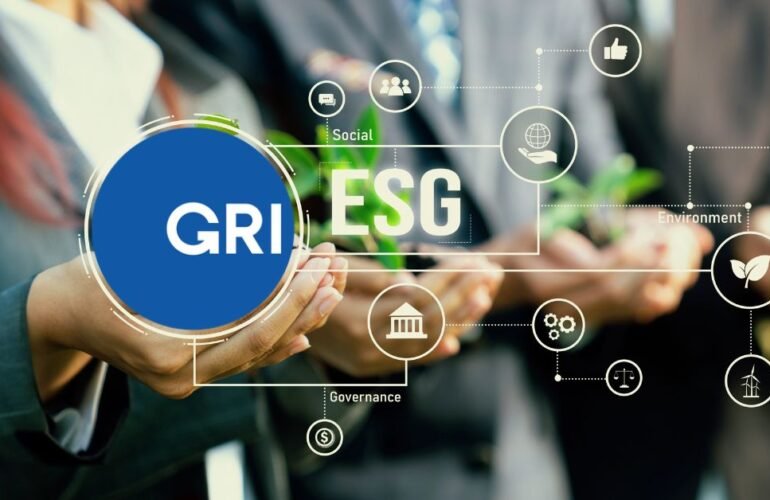ESG Reporting Services Malaysia: Evolving ESG Report Creation – Environmental, Social, and Governance (ESG) reporting is no longer a niche activity for Malaysian companies. With a heightened global focus on sustainability, Malaysia’s Environmental, Social, and Governance (ESG) reporting landscape is undergoing rapid changes. New frameworks, evolving regulations, and best practices now guide how businesses report on their impact, not just to investors, but also to consumers, employees, and regulators.
What Is Environmental, Social, and Governance (ESG) Reporting?
Environmental, Social, and Governance (ESG) reporting involves disclosing how a company manages risks and opportunities around ecological, social, and governance issues. These could include topics like:
- Reducing greenhouse gas emissions
- Promoting fair labour and diversity
- Practising transparent corporate governance
- Supporting local communities
If you want to learn how to turn ESG strategy into real business value, check out our article: Understanding ESG Strategy to Add Value for Your Business Growth.
For Malaysian firms, robust Environmental, Social, and Governance (ESG) disclosure is now essential, not only to comply with the law but also to build trust and remain competitive.
ESG Reporting Services Malaysia: Regulatory Requirements & Key Updates in Malaysia
1. The National Sustainability Reporting Framework (NSRF)
In 2024, Malaysia launched the National Sustainability Reporting Framework (NSRF) to create a consistent approach to Environmental, Social, and Governance (ESG) disclosures. The National Sustainability Reporting Framework (NSRF) aligns local reporting rules with global standards from the International Sustainability Standards Board (ISSB), especially the International Financial Reporting Standards Sustainability 1 (IFRS S1) and S2.
Curious about making your reporting journey more seamless? Explore actionable tips in: How to Make the ESG Reporting Process Less Painful.
2. Who Must Report?
- Main Market List Companies (Large-Cap): Begin reporting under new standards from January 2025.
- Other Listed Companies: Start from 2026 (Main Market) or 2027 (ACE Market).
- Large Non-Listed Companies (annual revenue over RM2 billion): Also required to comply alongside listed firms.
- Scope 3 Emissions Reporting: Starting in 2027, large businesses will be required to report their value chain emissions, in addition to their direct operations.
Interested in how your company can benefit from the rise of responsible investing? Read: ESG Investing: How Companies Can Benefit from the Sustainable Investment Trends.
3. Core Reporting Requirements
- Mandatory Sustainability Statements: All listed companies must disclose how they manage material Economic, Environmental, and Social (EES) risks in their annual reports.
- Climate-related Disclosures: Requires reporting on climate risks and opportunities, including targets, strategies, and performance measures.
- Audit or Assurance: Reports must be reviewed by internal auditors or independently assured to recognised standards, such as International Standard on Assurance Engagements 3000 (ISAE 3000).
For insights on effective stakeholder communication and differentiating your brand, see: Sustainable Marketing: ESG Communication Insight for Websites.
4. Key Laws to Consider
- Environmental Quality Act 1974: Regulates pollution and environmental impacts of business operations.
- Employment Act 1995: Sets rules for fair working conditions and employee rights.
Explore how to navigate the challenges of ESG messaging in: Challenges of ESG Marketing.
Additional requirements may apply depending on the business sector and location.
Why These Changes Matter
Malaysia’s move towards mandatory, standardised Environmental, Social, and Governance (ESG) reporting aims to:
- Boost transparency and comparability between companies
- Increase investor confidence and attract responsible capital
- Support national goals for climate action and social responsibility
- Drive companies towards long-term, sustainable business practices
It’s important to recognise the risks of greenwashing in today’s business world. Learn what to watch out for in: Greenwashing is Around the Corner.
Best Practices for Environmental, Social, and Governance (ESG) Report Creation
To meet both legal requirements and stakeholder expectations, Malaysian companies should follow these practical steps:
1. Identify Stakeholders & Material Issues
- List your key stakeholders, including investors, customers, staff, suppliers, regulators, and the broader community.
- Use a “materiality assessment” to discover which Environmental, Social, and Governance (ESG) issues matter most to your business and its stakeholders.
Curious how other businesses are advancing in this area? Check: Businesses are Opting for ESG-conscious Companies.
2. Collect & Verify Data
- Gather reliable Environmental, Social, and Governance (ESG) data from finance, Human Resources, procurement, operations, and external sources.
- Verify this data through internal checks, audits, or even third-party assurance for accuracy and credibility.
3. Select the Right Reporting Framework
- Use the National Sustainability Reporting Framework (NSRF) as the primary framework, which is closely aligned with international standards, such as the International Sustainability Standards Board (ISSB) and the International Financial Reporting Standards Sustainability (IFRS S1 and S2).
- Consider referencing frameworks like the Global Reporting Initiative (GRI) or the Task Force on Climate-related Financial Disclosures (TCFD) for additional clarity.
4. Map Data to Disclosure Requirements
- Ensure that the collected Environmental, Social, and Governance (ESG) data is matched to the reporting requirements set out by the selected framework.
- Check for completeness and relevance to your sector.
5. Structure Your Environmental, Social, and Governance (ESG) Report Clearly
- Include an executive summary, introduction, performance data, and goals.
- Use visuals (charts, tables) and simple narrative language for better engagement.
For more on maintaining sustainable stakeholder relationships, read: ESG Marketing: Sustainable Relation Between Business and Stakeholders.
6. Internal Review & Stakeholder Engagement
- Review the report for alignment, clarity, and accuracy.
- Discuss drafts with internal teams and seek feedback from core stakeholders before publication.
7. Publish & Distribute
- Share your Environmental, Social, and Governance (ESG) report on your company website and other appropriate platforms to reach a broad audience.
- Consider submitting data to centralised platforms such as the Centralised Sustainability Intelligence Platform (CSI) in Malaysia for benchmarking.
If you’re looking for ways to turn sustainability into market advantage, see: Sustainability Marketing: Seize Business Opportunities.
8. Pursue Continuous Improvement
- Treat the Environmental, Social, and Governance (ESG) reporting process as ongoing, rather than a one-off.
- Use stakeholder feedback and lessons learned to improve future performance and reporting.
Looking Forward: Staying Ahead in Environmental, Social, and Governance (ESG)
As Malaysia’s Environmental, Social, and Governance (ESG) regulations evolve, businesses should view ESG as more than just a compliance requirement. It fosters innovation, reduces risk, and attracts investment. Effective Environmental, Social, and Governance (ESG) reporting isn’t just about meeting minimum standards; it’s a path to better corporate reputation, market differentiation, and long-term value.
Ready to Lead in Environmental, Social, and Governance (ESG)?
AsiaESG is here to support your Environmental, Social, and Governance (ESG) report creation journey, whether you need guidance, industry insights, or complete reporting solutions. Stay ahead of Malaysia’s Environmental, Social, and Governance (ESG) requirements by leveraging our expertise and tools.
Contact AsiaESG’s Environmental, Social, and Governance (ESG) solutions team today at AsiaESG ESG Reporting Services to get started.
For any enquiries or quotations pertaining to ESG Solutions, get in touch with our ESG Solutions department below:




